Text
The Intern Perspective: Kelly Bristow on Source 2014
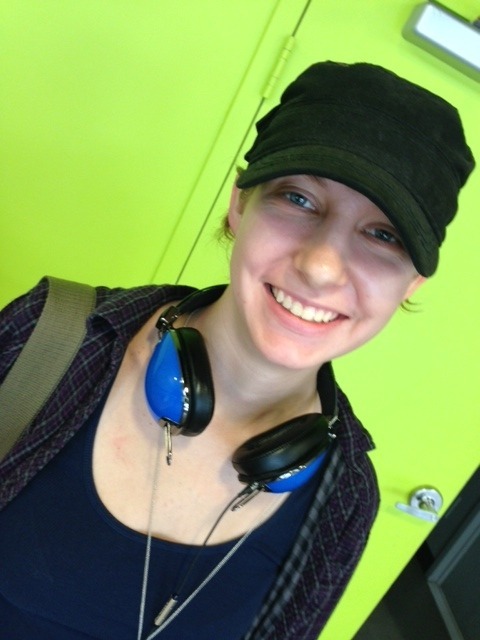
Learning and adventures? Now that's a great internship! Kelly Bristow is our super-savvy-Set Design Intern. Here's a little from Kelly on her experience with Source 2014...
I’m a set design intern. I do sets. I like designing them, I like building them, and the smell of saw dust is one of my favorites. I was prepared for all that. I was more surprised to find out I’d be an assistant stage manager for the 18 ten minute plays. This is my first time being an ASM and I had no idea what to expect. Turns out I love it, just as much as I love sets. Who knew I’d find so much satisfaction in organizing a prop table? You hear about people who want a job where every day it’s different, well here every minute is different and the energy you get from that is amazing. The acceleration you feel stepping off stage after a perfectly smooth transition, the satisfaction of sweeping up the last of the dust, or the cake, or the dirt which marks the end of the night, having someone ask you to do something and being able to answer that it’s already been done- it might sound a little ridiculous, but there’s always a bounce in my step when I’m back stage here.
Of course things get stressful sometimes. We have how many people running around trying to make each of their very different jobs somehow all fit in and work together in a way that is seamless and fluid and makes the story not only understandable but powerful. Sometimes the gaff goes missing, and sometimes the Kool-Aid spills farther then you want it to and yes, that dirt is going to get everywhere and no it can’t be completely off by the next show, but I honestly don’t mind those things, even as I’m complaining about them. The chaos is my favorite part.
0 notes
Text
The Intern Perspecitve: Maeve White on Source 2014
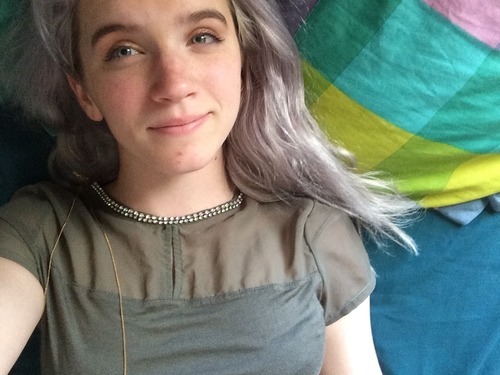
Maeve White is one of our rad Costume Design Interns. Here's a little from Maeve on her experience with Source 2014...
While most of my friends were driving out to Delaware for “Beach Week,” preparing to start their lazy summers off with a bang, I was walking into the Source Theatre, ready to start my internship for a festival I knew almost nothing about. I knew I was the costuming intern on a play called A BID TO SAVE THE WORLD, I knew the play was about death and had a lot of oranges in it, and I knew my designer, Katie Touart, but other than those three things, I didn’t have any idea what I was supposed to be doing from 10 am to 6 pm every day that week. Actually, I didn’t really know what my hours were on the first day. It was all just going to be an adventure, one that I was ready to take part in. As kids who had just graduated with me snapchatted me pictures of themselves on the beach, I sent them pictures of the marquee I’d just changed, or the flyers I was distributing all along the U Street corridor. I ended up on run crew for the 18 ten-minute plays, a job I’d never done in high school but had always secretly wanted to try. My internship ended up being a lot more involved than I’d realized, and it was totally awesome. I got to do all sorts of new things, from painting the front of the building, to hanging the masking curtains in the theater, to hauling massive piles of dirt offstage in what may have been the wildest transition ever. I even did some office work, getting to experience the mildly passive-aggressive attitudes of adults in office space. Even when I worked thirteen-hour tech days on a weekend, my friends were actually kind of jealous with me, because my job was so insanely cool. Of course, my true love is costuming, so whenever my designer needed help sewing or searching or sizing, I was pretty excited. The plays have all turned out spectacularly, with some of the most talented people I’ve ever met working really hard to make the festival a success. My personal favorite play is of course A Bid to Save the World, but that might just be because I’m a little bit biased. I also loved DRESSING BOBBY STRONG, PAINTED, FREDDY & CATHY, and CORN BREAD WITH RAISINS AND ALMONDS. The whole festival has just been an incredible experience that has pushed me out of my comfort zone again and again without ever making me feel like I was being taken advantage of as cheap labor. When kids I know talk about their internships or their summer jobs, they describe being bored at a desk doing nothing or being bored in a lifeguard’s chair doing nothing. My internship is never boring.
1 note
·
View note
Photo
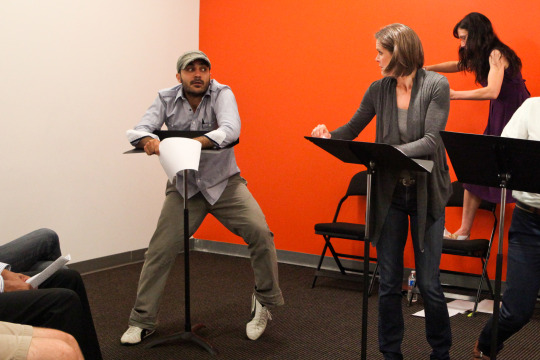
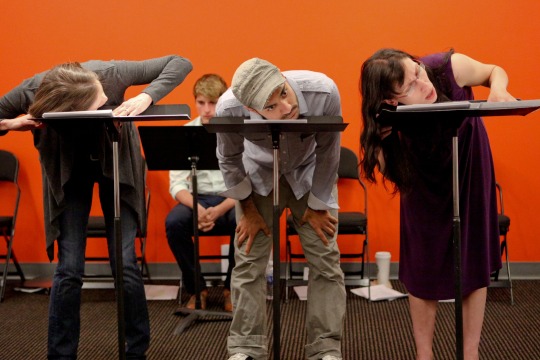
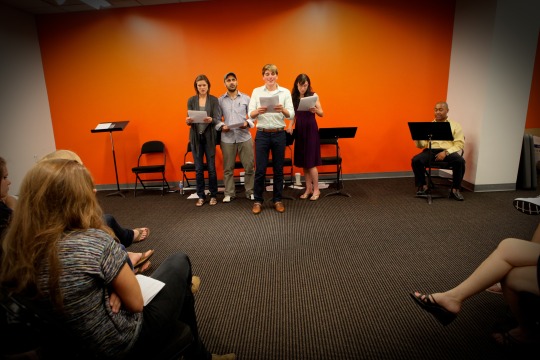
LAKE UNTERSEE was selected from more than 100 full-length play submission to the 2013 Source Festival. Before it was submitted for Source it received development support from our friends and DC neighbors The Inkwell. Here Inkwell Executive Director Anne McCaw talks about her experience with the play.
The journey to Lake Untersee
by Anne M. McCaw
Executive Director, The Inkwell
I recently got a sneak peak at the Source Festival's upcoming production of Lake Untersee by Joe Waechter, sitting in on a first run of the play in full. I've a vested interest in this beautiful play, and it was a thrilling moment to see it up on its feet. My associates at The Inkwell and I are so grateful to the producers of the Source Theatre Festival for having such great taste (in our humble opinion) to choose this play for production. Before I share my thoughts about the run-through, let me tell you about my journey to Lake Untersee — the one imagined by Joe — which began nearly three years ago.
I'm the Executive Director of The Inkwell (www.inkwelltheater.org), a theatre company here in Washington, DC that supports playwrights in developing new plays that push boundaries. Every 18 months, we ask writers to send us their most imaginative and ambitious plays. A team of between 60 and 90 readers then review each and every play at least three times. After three rounds of review, we choose between 20 and 30 to explore with a team of directors, dramaturgs, designers, and actors. Our collaborations with playwrights take many forms, but they start with an initial conversation about their plays and then a development process we call a FIRST CONTACT showcase. Over a week, we explore 20-minute excerpts of the latest draft of three plays with a team of directors, dramaturgs, and actors. At the end of the week, we present the excerpts, with each dramaturg as guides for audience members.
I was one of the first people from The Inkwell to read an early draft of Lake Untersee in 2010. I was immediately taken with the play's lyricism and humor. I remember laughing out loud as I read Phyllis' lament about her teenage son Rocky, whose primary form of communication is grunting. And I was pulled into Rocky's predicament expressed in a mix of poetry, imagery of Antarctica, teenage speak, and a devolution of language as Rocky struggles to express his secret desires. Lake Untersee was one of 23 plays we chose to explore after reading more than 350. I'd like to say we did a perfect job of introducing Joe to The Inkwell's development process, but that would be a lie. In fact, we gave him an awfully bad first date, putting him in a rehearsal room with a serious mistake in casting. It was a painful moment for all of us. We didn't want to let go of Joe, so we invited him back for a second exploration of a 20-minute excerpt of his play about eight months later. He graciously accepted. I'm pleased to report that we learned a lot from our error, and we had a terrific time working with Joe, looking specifically at the ending of the play. I was the dramaturg for the process and have since worked with Joe and the folks at the Source Theatre Festival on the play.
I've now read Lake Untersee at least seven times (I now have trouble keeping count) in a variety of iterations. I've read four different endings of the play. I've seen each character grow in complexity. I've seen the language of the play become leaner, deeper, more poignant. And as many times as I reread the ending of the play (which came out of the FIRST CONTACT development process with The Inkwell), I still shed a tear or two.
With a few weeks until opening night on June 12th, it's a nervous and thrilling time for the actors and director at the Source Festival. I felt their tremendous passion for the play on May 22nd when they presented their interpretations of it for an audience that consisted of the producing staff of the festival, the production designers, myself, and Joe.
In seeing this first run-through (often known in the theater world as a "stumble through"), I was reminded of all the reasons I love the play — and that reading a play over and over is an entirely different experience from seeing it performed. As delighted and moved as I have always been by Lake Untersee, I don't think I fully appreciated the play's depth until I saw key moments fully realized.
I laughed even harder at the interplay between Rocky and his mother. My breath caught in my throat when Rocky made a snow angel and then a snow dog (yes, it's possible) on the carpet of the rehearsal room. I found new favorite moments like Rocky and his father's girlfriend staring at an unfinished mural. And I think I understand Rocky's journey in way I never would from just reading lines of dialogue and stage directions. I hope you all will join the expedition to Lake Untersee — with Rocky and his family, with snow angels and icebergs and penguins and aliens. I don't think you'll be disappointed.
1 note
·
View note
Link
The cast, director and producer of Perfect Arrangement bare their souls in WAMU's Metro Connection with Rebecca Sheir.
0 notes
Photo
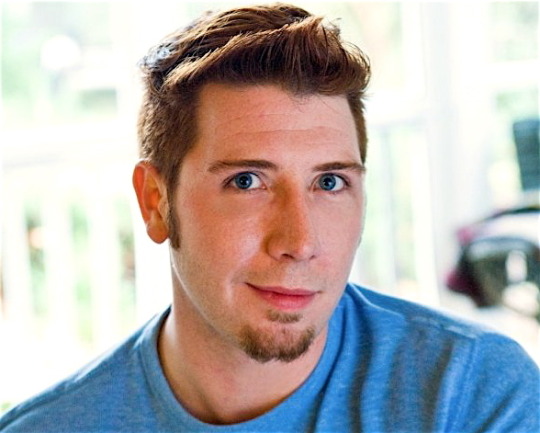
The America presented in the early days of television was such a freshly-scrubbed portrait of flawless domesticity- breadwinning husbands coming home to wives vacuuming in pearls. We tend to remember a bygone era not by actual events, but by the images of its popular culture. So now we think of these Donna Reed/Lucille Ball households as the midcentury norm, when in truth they never actually existed. So I wanted to take that model, and fold in the actual events on the front page of the paper inthe early fifties. Two couples, living outside the norm, hoping to protect themselves by achieving the aspirational ideal they’ve seen on television. It’s a proposition I find desperate, sad, and hilarious.
--Topher Payne, Playwright PERFECT ARRANGEMENT
TOPHER PAYNE is the author of more than a dozen produced works for the stage, including LAKEBOTTOM PROPER and LAKEBOTTOM PRIME at The Springer Opera House, TOKENS OF AFFECTION and SWELL PARTY at Georgia Ensemble Theatre, ANGRY FAGS at 7 Stages, and The Process Theatre’s ABOVE THE FOLD, which won the 2009 Metro Atlanta Theatre Award for Best Play of the Year.
Topher served as a Grand Marshal for the 2011 Atlanta Pride Parade, and has been honored with numerous distinctions by the community, including: Best Local Playwright (Creative Loafing Reader’s Choice, 2010, 2011, 2012); Best Local Writer and Best Local Actor (GA Voice Reader’s Choice, 2010, 2011, 2012); Artist of the Year (David Magazine 2011); Best Local Playwright (Sunday Paper, 2010); and Best Humor Columnist (National Newspaper Association Awards, 2012.)
Topher lives in Atlanta with his husband, his dog, and his imaginary friends. His next work, THE ONLY LIGHT IN RENO, locks Marilyn Monroe and Elizabeth Taylor in a hotel room during a citywide blackout. It premieres in January 2014 at Georgia Ensemble Theatre.
0 notes
Photo
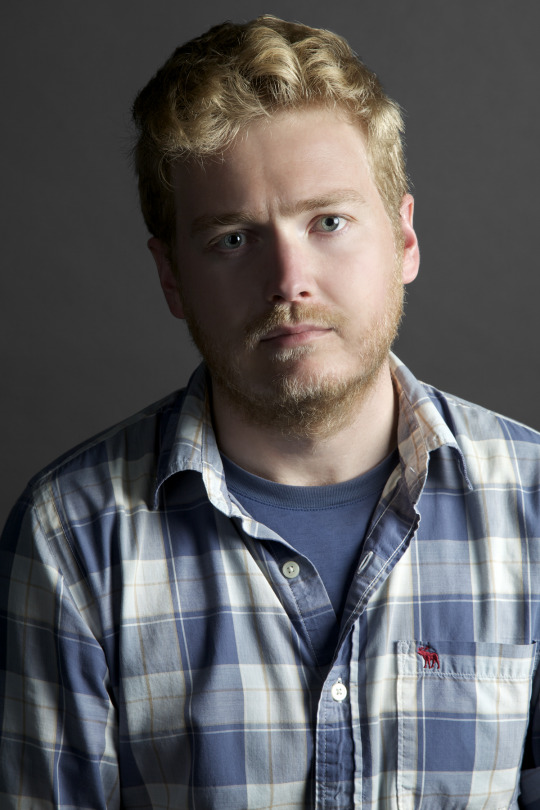
I began writing A FRONTIER – my thesis play for my MFA at Columbia – in 2009, a moment of national uncertainty that was both financial and moral. With so many families struggling (and continuing to struggle), with so many dreams fractured through the skin, it felt as though we were deceiving ourselves if we did not take a sober look at the mythologies that this country has prided itself on, and that it has perpetuated in its position as the land of opportunity. Participation in the American narrative has brought great wealth and prosperity, along with severe inequality and environmental devastation. But it is very difficult to adjust the stories that give us definition: stories about our country, our family, our culture. Four years later, there is a tentative sense of economic recovery for some, but the underlying problems have not necessarily been addressed: too many of us cling desperately to the old American ideal. How could we not, when it is all we know?
--Jason Gray Platt, Playwright, A FRONTIER, AS TOLD BY THE FRONTIER
Jason Gray Platt’s work has been produced and developed around the country by the Source Festival, American Repertory Theater, Actors Theatre of Louisville, Round House Theater, The Institute of Contemporary Art/Boston, P73, Red Bull Theater, Ensemble Studio Theatre, Clubbed Thumb, Abingdon Theatre Company, The Inkwell, The Inconvenience, and through residencies at The Millay Colony and Djerassi. He received a Helen Hayes Nomination for The Charles MacArthur Award for Outstanding New Play in 2013 and was the 2007 runner-up for Princess Grace Award in playwriting. Originally from Arizona, Jason now lives in Brooklyn. BA: Vassar; MFA: Columbia.
1 note
·
View note
Photo
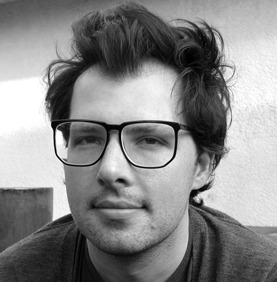
“My personal compass has always pointed toward the coldest, most remote places on our planet. Even as a child, I grew up researching and daydreaming about family vacations to Iceland and Antarctica. In these dark corners of the world, where all the complications of our daily lives become frozen, true connection seems possible. Lake Untersee was born from this idea, that perhaps in the absence of these distractions and in the spirit of adventure, we can become a more perfect version of ourselves.”
--Joe Waechter, Playwright LAKE UNTERSEE
Joe Waechter’s plays include PROFILES, Lake Untersee, Good Ol’ Boys, The Hidden People, and The Strangler. His work has been developed or produced by Playwrights Horizons, Ars Nova, American Repertory Theatre, McCarter Theatre, Trinity Repertory Theatre, The Kennedy Center, The Amoralists, The Hangar Theatre, Red Eye, The Inkwell, Clubbed Thumb, Perishable Theatre, Pavement Group, and The 25¢ Opera of San Francisco. Upcoming projects include readings and workshops at Portland Stage’s Little Festival of the Unexpected and PlayPenn, and residencies with SPACE at Ryder Farm and The Arctic Circle.
Awards include the McKnight Advancement Grant and two Jerome Fellowships at the Playwrights’ Center, a Lucille Lortel Playwriting Fellowship, the Weston Award in Playwriting, a Jerome Emerging Artist Residency at Tofte Lake Center, and the Clauder Competition Gold Prize. In 2009, Joe received a travel grant to develop The Hidden People, a three-part epic mash-up of Icelandic folklore, Norse mythology, and The Bible.
Joe also creates work for other medium, including the “headphone operas” The Hoot Owl and Howard Gap Road, and animmersive virtual reality piece titled Antarctica. MFA Playwriting, Brown University. www.joewaechter.com
0 notes
Photo
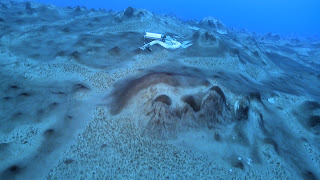
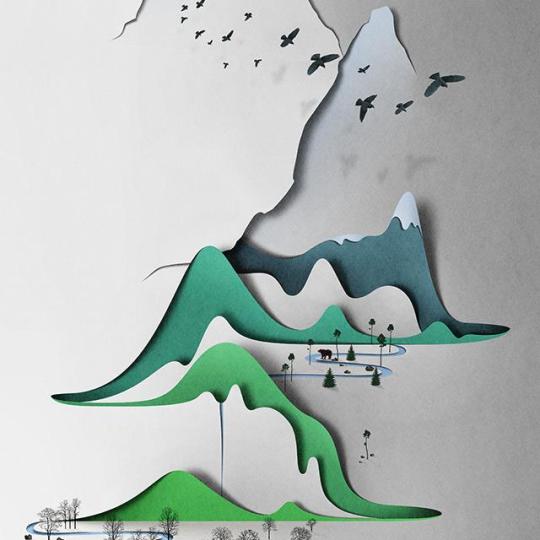
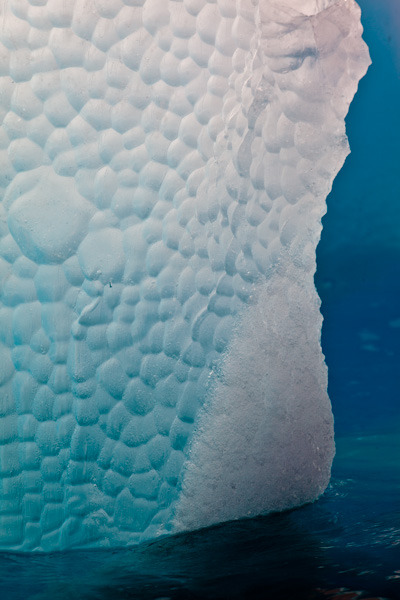
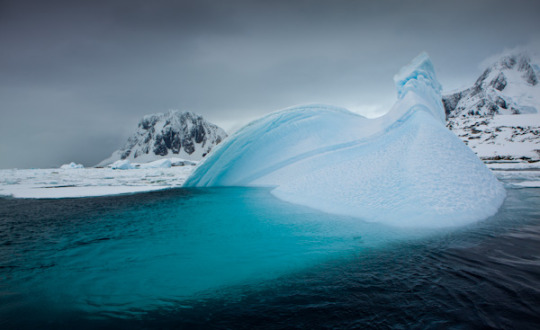
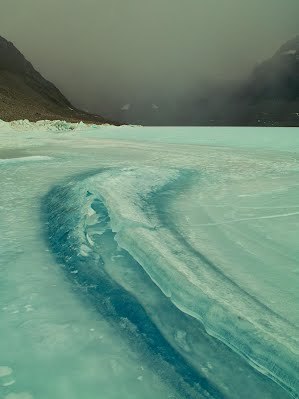
Lake Untersee (the play) takes its inspiration from Lake Untersee (the lake), a beautiful and freezing fresh water lake in Antartica. Here some amazing photographs.
0 notes
Link
"If heaven exists, what would you like to hear God say when you arrive at the pearly gates?
'I hope you brought your scripts. You’re going to love the casting pool we’ve got up here.”"
Source Festival '13 Playwright, Topher Payne is taking on the Designing Women in Atlanta this month. See what else he has to say:
0 notes
Photo
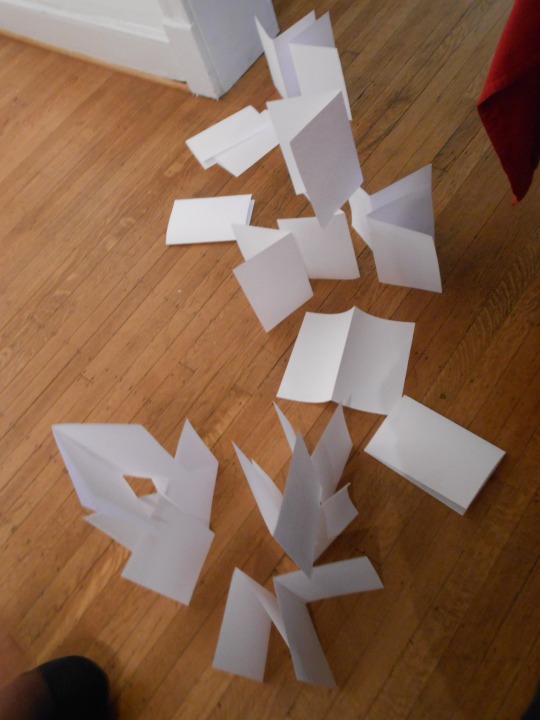
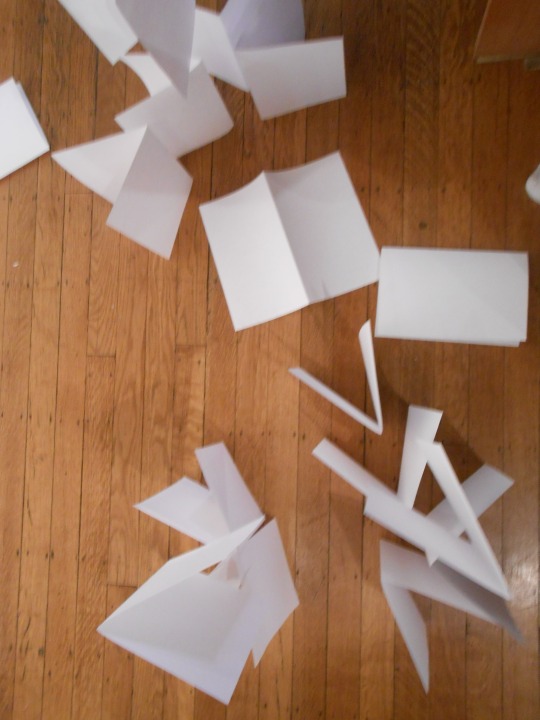
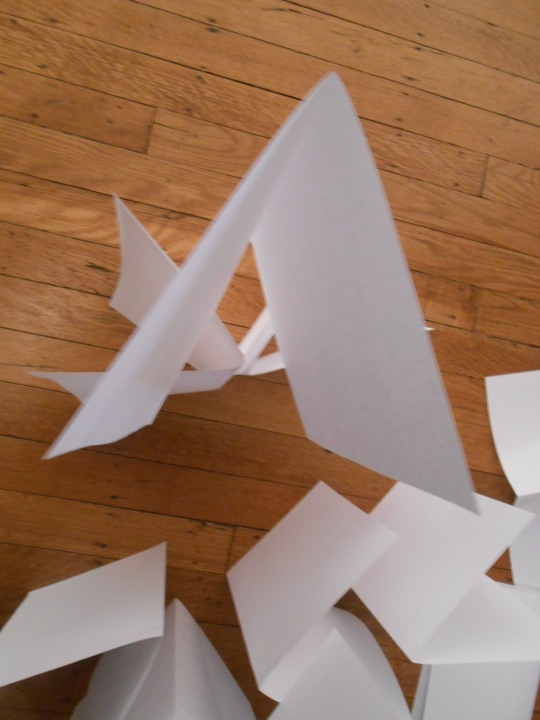
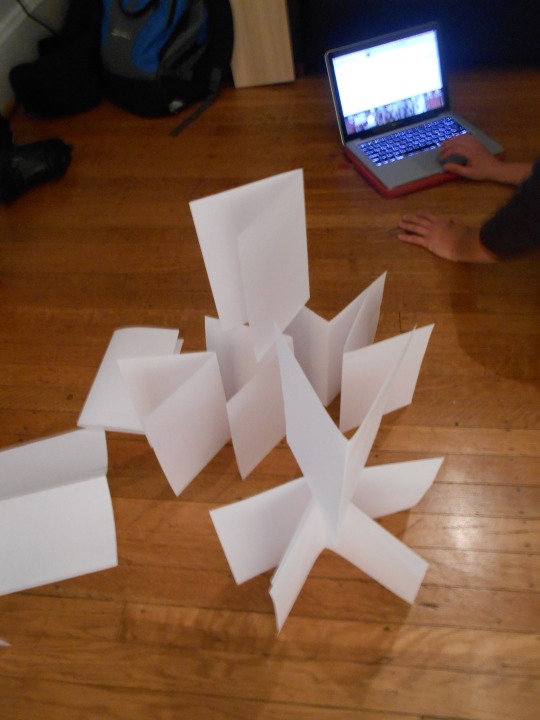
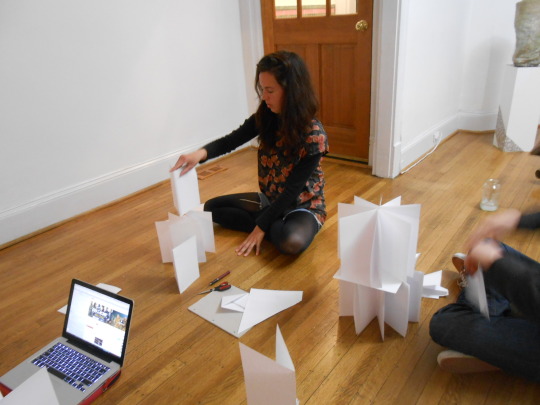
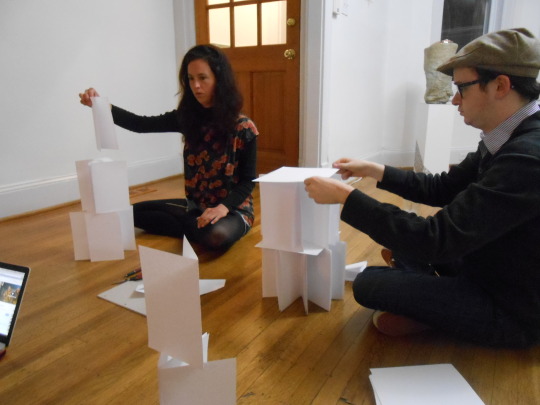
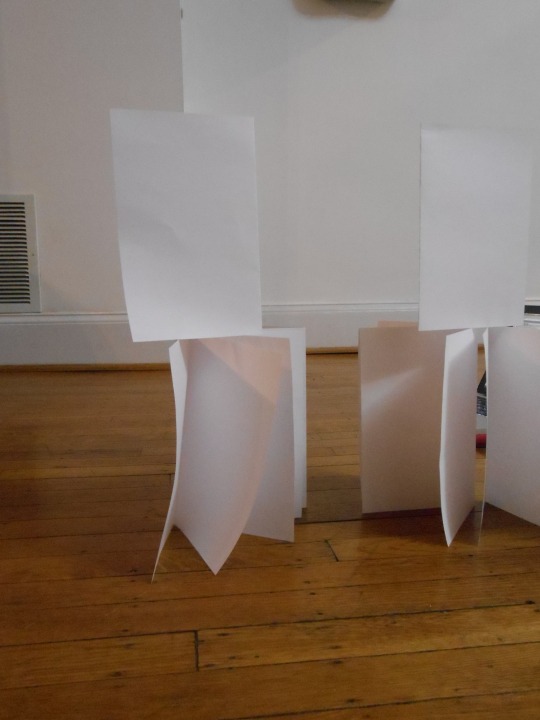
Here are some photo's from the Artistic Blind Date (ABD) team, Momentum, Interrupted. For those that don't know what an ABD is, it's when three artists from disparate mediums come together to learn from each other's medium and create something new together. It involves a lot of experimentation, as we'll see in these photos.
0 notes
Text
Workshop Weekend
Okay, so its been awhile. In case youve forgotten, my name is Emilyone of three assistant producers and dramaturgs for the Source Festival. I've been busy, you've been busy, Jennys been busy. We've all been busy. And the blog has been neglected. But its a new year and new, beautiful spring and that means...blogging! I'm happy to be back, and I hope you are to, so lets get to it!
Last weekend Source Festival hosted its 3rd annual workshop weekend. It was a weekend of fun and productivity where playwrights came and talked about their work, listened to it be read out loud, gave feedback and took notes. It was a time for playwrights, directors and dramaturgs to meet and collaborate.
The weekend started off on Friday when all the playwrights came from out of town to meet here, in Washington, DC. Joel Waechter (Lake Untersee) came from Minneapolis, Topher Payne (Perfect Arrangement) came from Atlanta and Jason Gray Platt (A Frontier, As Told by the Frontier) came from New York City. We all introduced ourselves, and then read excerpts from each play. After that and a tour of Source, we went over to Marvins to get drinks and chat. (It was a bit chilly but sunny and generally lovely, you'll be happy to know.) From there, most of the group went to Ben's Chili Bowl to get famous halfsmokes, which everyone enjoyed.
Then it was Saturday! It was the very beginning of Saturday when we all convened again. We assembled into playgroups. I was with Perfect Arrangement, with Topher, Linda Lombardi, our director, and an assembled cast. Topher started us off by telling us the backstory of his play, both in terms of style and content. The play takes place in 1950, and uses the classic sitcom styleyou know the kind, lots of cheesy ad breaks and laugh lines. The content of the play, however, is much more serious, as it describes the Lavender Scare, a period of time when homosexual men and women were blacklisted from the government. Topher discussed all of this and more, such as the Sodomy laws during 1950. It was fascinating, and we ended the day with a quick rehearsal of a scene to be acted the next day and then...break!
I can't tell you what the crew did Saturday night because I wasn't there, but I think it involved bar hopping around Mount Pleasant and H Street, as one does when one is in town.
Sunday was our big event. We announced the 2013 lineup and had the playwrights say a little bit about their plays and then they presented that scene I mentioned above. We had a great turnout and lots of enthusiasm from everyone involved. There was coffee and bagels and doughnuts and doughnut holes. Mmmhmmm. Overall, I think the weekend was extremely successful. Playwrights found new aspects of their plays to work on, directors got to hear their plays read aloud for the first time and actors got to meet fellow actors. Next step is first rehearsal, where well all convene for a second time for some table work and possibly a little rehearsal.
0 notes
Text
One Mile of Contemporary American Plays
by James Hesla
After reading nearly 200 ten-minute plays, over 50 full-length plays and hundreds of evaluations submitted by our loyal army of readers in a two year period, I have identified some interesting “trends” in contemporary American playwriting. Of course, my observations are in no way scientific or exhaustive. I can only respond to the pool of plays submitted for Source Festival over the last two years, but I think it is possible to extrapolate from the Source Festival sample group, which includes 1200 ten-minute plays and 180 full-length plays, some intriguing observations concerning subject matter and style that contemporary playwrights seem to be exploring. At the very least, I can offer a snapshot of the kinds of plays we’ve seen at Source the past two years.
There are some subjects that we have seen quite frequently the last two years. For example, there are a lot of plays about the estranging power of technology, particularly the internet. Scores of plays express an anxiety over the way the internet has undermined the important social connections we take for granted as humans. The stories are all different and unique, but the theme is generally the same: twenty-first century technology in general and the internet in particular are destroying our ability to forge meaningful human bonds. In fact, we produced one last year. F2F, by Jennifer Barclay was about a group of high school students scandalized by a “sext” sent by a popular girl to a nerdy outcast. The students relate to each other in text-speak, abbreviating everything while an adult narrator attempts to decipher the deeper sociological significance of this truncated and impersonal mode of communication.
We have also seen a spike in the number of plays about dating. Obviously, plays about relationships between men and women (or between men and men, and women and women, and might as well mention interspecies relationships) are nothing new in drama. But lately we have seen quite a few plays that deal with the challenges faced by young urban professionals seeking a mate. We could probably make up an entire program of ten-minute plays about dating services—either online, or in person. A recent article on cyber dating in The Huffington Post (online, natch) cites a study sponsored by match.com that found 1 in 5 people had been on a date with someone they met online, and 1 in 6 married couples met through an online dating service. And for every dating success purported by the purveyors of dating services, there are at least a dozen crash-and-burn failures. The 2010 documentary, Catfish, charts a particularly bizarre and fascinating relationship carried out via Facebook between a New York hipster and a woman he thought was a hot musician and horse rancher. If you haven’t seen the movie, I won’t give away the ending, but as you might guess, she is not exactly who he thinks she is.
Another trend I have noticed are plays that feature rural, poor white American families, often derogatorily referred to as “white trash.” In White Trash: Race and Class in America, authors Matt Wray and Annalee Newitz state, “the white trash stereotype serves as a useful way of blaming the poor for being poor. The term white trash helps solidify for the middle and upper classes a sense of cultural and intellectual superiority.” In striking counterpoint, plays like Gabriel Dean’s incisive, funny and moving portrayal of rural Georgia, titled The Qualities of Starlight serve to add dimension to the simplified definition of rural poor. The main character in The Qualities of Starlight returns to his childhood home—a trailer in rural Georgia—to ask his parents for help adopting a baby. The Qualities of Starlight was one of the plays we produced for Source Festival 2012, but we were also considering plays about poor rural whites set in Utah, Florida (that also featured African American characters) and a third set in a fictional American west.
We have also seen a number of plays this year that treat a character or characters under the age of full legal responsibility—teens under the age eighteen. And while it is too soon to call this emerging genre a “trend”—trends, after all, are a way of charting change over time, and I am only looking at this year’s submissions—there are some striking similarities among these plays that merits consideration. Thematically they share much in common with that tween lit phenomenon, The Hunger Games. I am not implying that these writers are emulating The Hunger Games or trying to capitalize on its popularity. Rather, like The Hunger Games, I think these plays are the artists’ way of confronting some of the uncertainties and anxieties of twenty-first century life. Last year we produced Gregory Moss’ play, The Uses of Enchantment, about a sixteen year old girl who feels estranged from her recently divorced father, the popular kids in her new school, and her pedantic English teacher, as she struggles to cope with her feelings of guilt, and grief over a family tragedy. Interestingly, several of the “teen plays” we are considering this year are set in a post-apocalyptic world, or a world without adult supervision, in which a band of young people are forced to deal with circumstances they are unequipped to handle.
I cannot say which, if any, of these plays might be selected for this year’s festival, but I can guarantee that we have twenty-five exciting, challenging and innovative new works to choose from.
2 notes
·
View notes
Link
Vote for SOURCE FESTIVAL as BEST THEATER FESTIVAL in Washington City Paper's Best of Poll! http://www.washingtoncitypaper.com/bestofpoll/
1 note
·
View note
Link
Hey Folks,
It's that most magical time of the year...the time when we announce our top twenty-five semifinalists full length play submissions. These are the ones that made us laugh, cry, and think the most. Read over the artist bios and the play descriptions and tell us what YOU think in the comments!
1 note
·
View note
Text
The Cabbage Rolls For Thee...
Walking into an Artistic Blind Date (ABD) at the Source Festival, many audience members have only a small idea of what is about to take place. There is probably some sense that the piece about to be performed will be experimental, perhaps without a linear story line and concept. And then it begins: Cabbages roll across the stage (2010’s Memoria Brassica) or a strangely talkative man leads the group of patrons out onto the street (2012’s FILTER). Who are these strange creatures birthing creativity like it’s their job? Is being creative, in fact, how these people make a living? And where did all that cabbage come from?
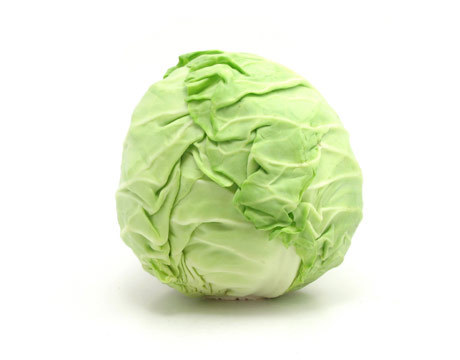
As the name of the project might indicate, the ABD’s embody the collaborative spirit of Source Festival.
Artists from different disciplines are assigned to groups of three and tasked with somehow creating a performance piece that incorporates each represented discipline. The finished products take many shapes, from coordinated efforts from clearly defined disciplines, to more inventive amalgamtions of art. Artists oftentimes wish to deviate from their wheelhouse and try something that may be a little out of their comfort zones. Regardless of the outcome, each project comes from a place of exploration and often leads to discoveries far beyond the orginal Blind Date.
John Moletress collaborated on the 2011 blind date Collapsing Silence. The piece resonated with Moletress so much that he founded Force/Collision, an interdisciplinary artist company that strives to create new performance works. “Collapsing Silence was a great precursor to the work I’m mostly engaged in at present,” said Moletress of his ABD piece. “Artistic Blind Dates present a studio-like environment to step into the cooker and collaborate. Its value is constituted by a willingness to try on a new approach or view from an alternate lens one’s process of making.”
After participating in 2010’s cabbage filled Memoria Brassica, ABD artist Kristina Bilonick went on to open the Pleasant Plains Workshop, a studio and gallery space focusing on local artists. “Being a visual artist I was more used to just making something and putting that out for people,” Bilonick said of performing her role in the project. “That was probably the hardest part to get over but once I did it, it was exhilarating.” In addition to founding the Pleasant Plains Workshop Bilonick also started the performance-art cheerleading troupe DC Cheer. “I learned that there’s something magical about collaboration where many people’s strengths can add integrity to a piece. So if I know of a dancer/choreographer that I can pull in to help come up with a special cheer for an event, I will call them! You can’t always do it all yourself.”
As a member of the panel that will select artists for the 2013 Source Festival ABDs, Bilonick will bring the collaborative spirit that inspires her art. In addition to the normal challenges of selecting artists that will work well with a few strangers in a foreign medium, the panel will have another factor to consider as they mull over applicants. For the 2013 festival, ABD artists must collect everything used in their pieces from secondhand sources. Materials can be borrowed from friends and neighbors, bought previously used from a thrift store, or utilized within an artist’s already established stash. This new component to the ABDs is not intended to stifle creativity or guide the direction of the projects, but rather it is an effort to spark larger questions of how art functions in a society increasingly interested in sustainability. Only time will tell how the 2013 Source Festival ABD groups weave this new step into their creative process.
0 notes
Text
Source Festival Producers: Now You Really Actually Can Catch 'Em All (Kathryn)
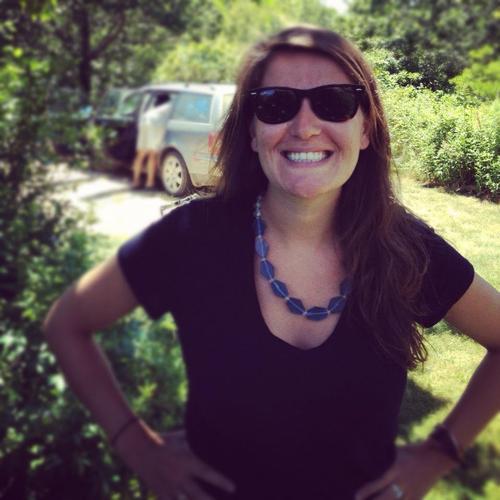
Kathryn, Assistant Producer!
Who is your artistic hero? Or, what artist do you most identify with? Sam Shepard, Paula Vogel, Sarah Ruhl, Sarah Kane. I read Buried Child when I was 15 and it changed my life, which is weird because 15 year old girls don't normally like Sam Shepard. Or maybe they do. That might be completely false.
What is the weirdest thing you’ve ever found yourself doing for art? Either when I googled "How to look like you're smoking crystal meth," or when I gave a demonstration on how to smoke out of a meth pipe. Both of course for Gabriel Jason Deans's Qualities of Starlight in last year's festival.
What’s your favorite pop culture guilty pleasure? Taco Bell. Does that count?
What book is on your nightstand? A Thousand Lives, by Julia Scheeres. It's a book about Jonestown and The People's Temple.
What’s on your i-pod/in your tape deck/on your record player/8-track? Currently listening to an Adele pandora channel, which isn't cool or hip or anything but I love her and will never get sick of listening to her voice.
Mmmmmmmmm young Sam Shepard.
0 notes